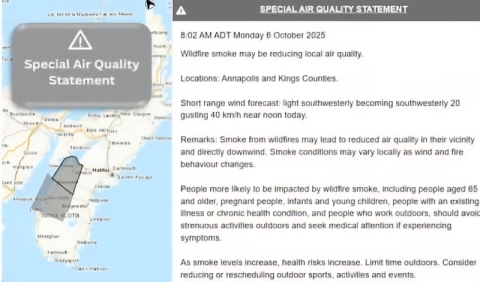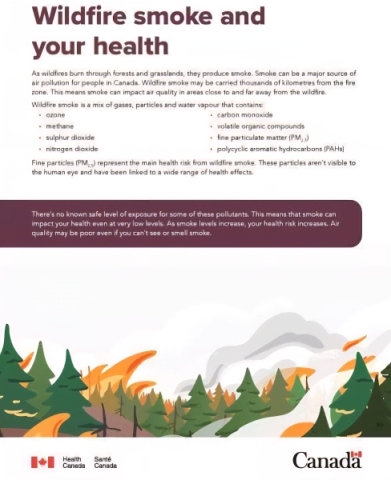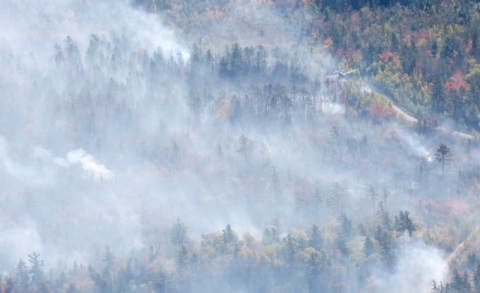News
Special Air Quality Statement
Kings & Annapolis Counties, Widfires
People more likely to be impacted by wildfire smoke include those aged 65 and older, pregnant people, infants and young children, people with an existing illness or chronic health condition, and people who work outdoors, should avoid strenuous activities outdoors and seek medical attention if experiencing symptoms.
Wildfires can produce smoke that degrades air quality in surrounding areas and downwind regions. Local smoke conditions may change as wind patterns and fire behavior fluctuate.
As smoke levels rise, health risks escalate. Limit outdoor time. Consider postponing or adjusting outdoor sports, activities and events.
Common and mild symptoms may include eye, nose and throat irritation, headaches or a mild cough. More severe but less common symptoms include wheezing, chest pains or severe cough. If you think you are experiencing a medical emergency, seek immediate medical help.
Indoor protection measures include keeping windows and doors closed. During concurrent extreme heat and poor air quality events, prioritize cooling. To safeguard indoor air quality against wildfire smoke, consider utilizing a clean, high-grade air filter in your ventilation system and/or a certified portable air cleaner equipped to filter fine particles.
Check in on others who are in your care or live nearby who may be more likely to be impacted by outdoor air pollution.
Always follow guidance from local authorities.
To mitigate health risks and pollution contributions, and to stay informed about current and forecast AQHI values, visit airhealth.ca. Moreover, weather alerts and forecasts are accessible at https://weather.gc.ca/?layers=alert&province=NS
Liability for this article lies with the author, who also holds the copyright. Editorial content from USPA may be quoted on other websites as long as the quote comprises no more than 5% of the entire text, is marked as such and the source is named (via hyperlink).








